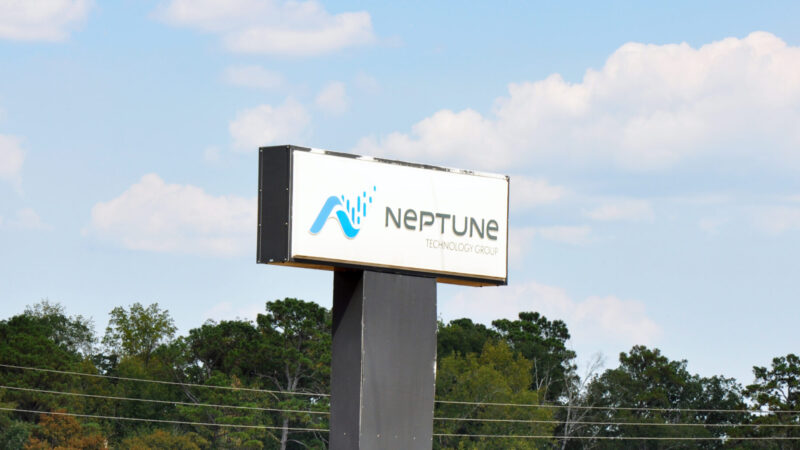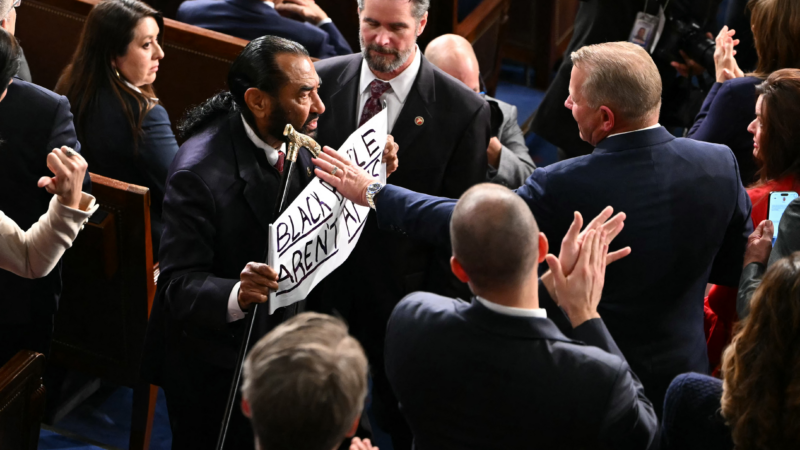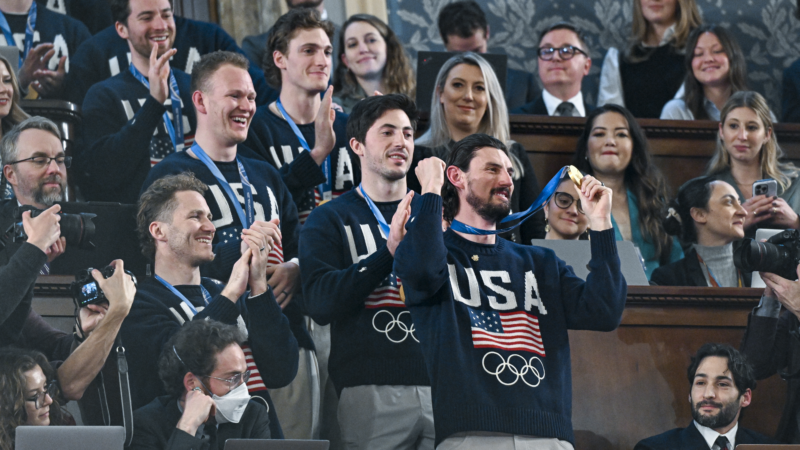Coalition raises concerns surrounding manufacturer’s environmental, labor practices in small Alabama town
Neptune Technology Group, which makes water meters for public utilities across North America, relocated its headquarters from New York to land near the Tallapoosa River in Tallassee in 1972.
By Olivia McMurrey
A sign welcoming drivers to Tallassee, Alabama, calls the town a “Treasure on the Tallapoosa.” Members of a coalition of community, advocacy and labor organizations that held a press conference there recently would say they’re trying to keep it that way.
After publishing a report on Sept. 15 that alleges harmful environmental and workplace practices at a global company that’s a major employer in Tallassee, leaders of the Good Neighbors Alabama coalition announced that Neptune Technology Group is open to dialog with their group, which is calling for a contract that would guarantee ecological and employee protections.
“We’re asking for the company to investigate and to make sure that the Tallapoosa River stays clean, to make sure that the drinking water of Tallassee stays clean for everyone and to make sure that the people working inside of Neptune are also free of hazardous materials,” said Luis Robledo, a senior organizer for coalition member Jobs to Move America, during a press conference at a park near Tallassee City Hall.
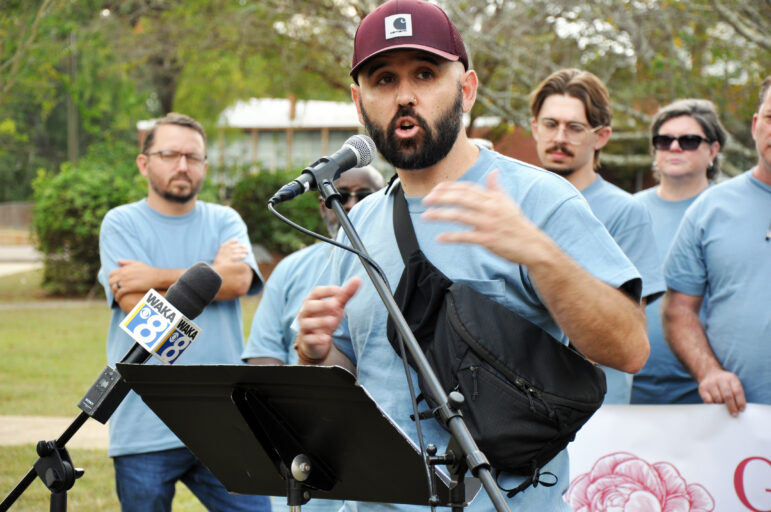
The Tallapoosa River bisects Tallassee, a town of approximately 5,000 residents located between Montgomery and Auburn. Neptune, a manufacturer of water meters for public utilities across North America, relocated its headquarters and manufacturing facility from Long Island City, New York, to a site near the river in Tallassee in 1972. Directly across Highway 229 from Neptune’s facility and adjacent to the river is a municipal wastewater lagoon where the company disposes of toxic materials including lead and copper.
In addition to questioning the company’s generation, management and disposal of industrial waste, the coalition’s report alleges gender and race wage disparities, unfair employee treatment, safety issues and typical schedules of 55 to 75 hours per week for production workers.
Coalition leaders said the 30-page report was based on a two-year investigation that included interactions with nearly a quarter of Neptune’s production workers in Tallassee and an analysis of public records.
Neptune representatives did not respond to specific questions or confirm willingness to work with Good Neighbors Alabama but said in a statement that the report contains significant misrepresentations and inaccuracies.
“Neptune takes allegations of unsafe working conditions, work-life balance concerns, and unfair treatment very seriously,” the statement reads. “We have processes and mechanisms in place to address these issues and strive to be a premier employer in the region.”
Company officials also said in the statement that Good Neighbors Alabama is closely aligned with a labor union that has been trying to organize Neptune’s employees for almost two years.
Environmental impacts
EPA data show the wastewater lagoon, called the Tallassee Sewer Stabilization Pond, where Neptune disposes of toxic materials, has violated the Clean Water Act almost every quarter during the past three years. Alabama’s attorney general and the Alabama Department of Environmental Management sued Tallassee in 2017 for years of repeated violations of the city’s permit for the lagoon.
Sherah Faulkner, primary author of the Trade-Offs in Tallassee report and a senior researcher for Jobs to Move America, said the lagoon has been in a state of chronic permit violation since the early 1990s.
“Neptune has discharged over 600,000 pounds of copper to this pond, in addition to 13,000 pounds of lead,” Faulkner said. “Copper is actually more toxic in wastewater lagoons than lead or zinc because it kills the microbes that allow the treatment to function.”
Downstream of the lagoon, an intake on the Tallapoosa River supplies drinking water for residents of Tuskegee, Alabama, said Will Tucker, Southern director for Jobs to Move America and another report author.
The report cites a sharp, unexplained spike beginning in 2023 in lead waste generated by Neptune’s facility, which the company has described as “lead-free” since 2001.
According to a 2016 press release, Neptune converted the foundry where it produces bronze used to make its water meters to lead-free operations in 2001. The Good Neighbors report states this move coincided with lawsuits the company settled in California for supplying meters with higher-than-allowed lead content.
The federal Safe Drinking Water Act defines “lead free” as “not more than a weighted average of 0.25% lead when used with respect to the wetted surfaces of a pipe, pipe fitting, plumbing fitting and fixture.”
An EPA facility report shows Neptune’s disposal of lead and lead compounds dropped precipitously, from a high of 15,481 pounds in 1990, after EPA published the Lead and Copper Rule in 1991. Between 1993 and 2022, the amount of lead the company disposed of remained below 1,000 pounds per year. In 2023, the level shot up to 3,975 pounds, and in 2024 it increased to 7,755 pounds.
Matt Fullone, an organizer with Jobs to Move America who conducted interviews with current and former Neptune employees, said they told him the company stopped testing workers for lead exposure 10 to 15 years ago.
“Some of the workers said that it’s a known fact that they still do use lead,” Fullone said.
Faulkner said the research team turned up no cause for the increased lead waste, and Neptune did not respond to a question about it. A 2006 hazardous waste inspection report by ADEM lists floor sweepings, baghouse dust, no-bake sand, foundry ladle linings and spent coolant as observed lead waste streams at the facility.
Lead is not the only hazardous substance at the Tallassee plant. Others include copper, mercury, nickel and zinc.
According to more than three decades of filings to EPA’s Toxic Release Inventory, Neptune has not managed these TRI chemicals – which cause cancer, other acute or chronic health problems or significant environmental harm – using preferred methods such as recycling, energy recovery and treatment. Instead, the company has employed the last-resort methods of disposal or other releases.
This contrasts with industry norms, authors of the Good Neighbors report wrote. Other TRI-reporting facilities in the fluid meter manufacturing industry recycled, recovered or treated 92.6% of all metal-contaminated waste in 2023, per the report.
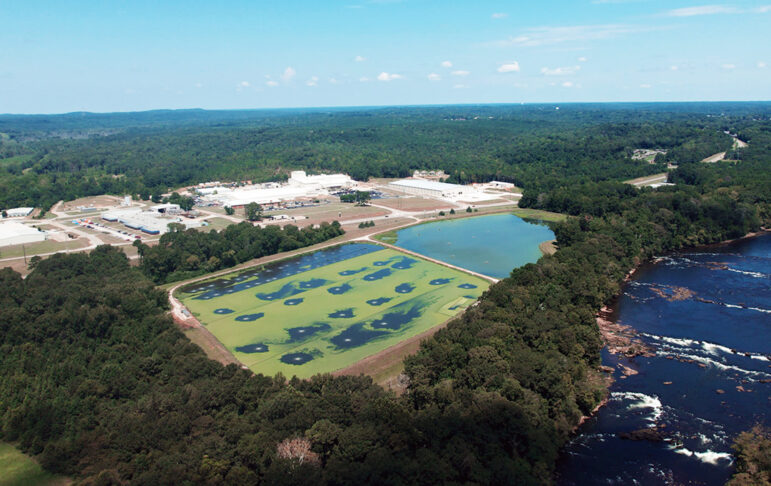
During the past five years, Neptune has released almost 8% of nearly 3.5 million pounds of TRI chemicals into the Tallassee Sewer Stabilization Pond, EPA data show. The remaining 92% of toxic waste has gone to three in-state facilities, GFL Environmental’s Stone’s Throw Landfill near Tallassee, a Waste Management disposal center in Opelika and a Chemical Waste Management landfill in Emelle.
The Emelle and Stone’s Throw landfills, both located in majority-Black, low-income communities, have elicited environmental-justice investigations, litigation and complaints alleging links between hazardous waste at the landfills and ill-health effects.
In 2025, EPA labelled the Emelle landfill a “significant noncomplier,” with violations in 11 of the past 12 quarters of a law that regulates solid and hazardous waste. EPA records show violations of the Clean Water Act at Stone’s Throw Landfill in 2024 and 2022.
Workplace practices
Press conference speakers also criticized alleged employment practices at Neptune.
“The coalition is well aware that Neptune has been in Tallassee for over 50 years, and we know the company has contributed to the community,” said Benard Simelton, president of the Alabama State Conference of the NAACP. “We also know that workers work here under extreme conditions. And if Neptune wants to be a good partner here in the Tallassee community, then we believe that there’s still work to be done.”
According to the Good Neighbors report, women earn $5.91 less per hour than white men, on average, and Black men earn $6.59 less per hour than white men. Researchers wrote that unequal access to higher-wage positions is the primary driver of wage disparities.
The issue researchers said interviewed employees raised most often was their work hours.
An ADEM document shows the plant operates only five days a week, but coalition leaders said interviews with production workers revealed most regularly work between 55 and 75 hours per week, often including weekends. Some employees said they had worked stretches of 21 days straight, according to the report.
In addition, workers’ schedules are unpredictable, with any day off subject to cancellation based on production demands, researchers wrote.
Long work hours affect safety at the plant, Simelton said, and the report states that 78% of surveyed employees had experienced or witnessed at least one serious injury on the job.
Faulkner said maintenance employees also pointed to machinery that isn’t adequately maintained – because it’s always operating – as a safety hazard.
Coalition’s next steps
Robledo said at the press conference that Good Neighbors Alabama coalition members hand delivered the report and a letter to Neptune officials the morning of Sept. 15.
“They have received us, and they have agreed to begin conversations with Good Neighbors Alabama,” he said.
The letter, addressed to chief executives of Neptune and its parent company, Roper Technologies, asks Neptune to negotiate a community benefits agreement with the coalition that would include enforceable solutions to the problems the report identifies.
It also asks company leaders to reach out within 48 hours to discuss a negotiation timetable. That has yet to happen, Tucker said.
He said other next steps for Good Neighbors Alabama include gaining a deeper understanding of the impact of toxic waste in Tallassee on the Tallapoosa River.
“That happens to be something that we intend to involve the community in, all focused on finding solutions,” he said.
Trump’s many tariff tools mean consumer prices won’t go down, analysts say
The Supreme Court struck down President Trump's signature tariffs. But the president has other tariff tools, and consumers shouldn't expect cheaper prices anytime soon, economists say.
Hundreds of American nurses choose Canada over the U.S. under Trump
More than 1,000 American nurses have successfully applied for licensure in British Columbia since April, a massive increase over prior years.
5 takeaways from Trump’s State of the Union address
President Trump hit familiar notes on immigration and culture in his speech Tuesday night, but he largely underplayed the economic problems that voters say they are most concerned about.
China restricts exports to 40 Japanese entities with ties to military
China on Tuesday restricted exports to 40 Japanese entities it says are contributing to Japan's "remilitarization," in the latest escalation of tensions with Tokyo.
Signs, silence, and skipping: How Democrats protested Trump’s State of the Union
The pushback comes as Democrats enter a midterm year where they hope to make gains in the House and Senate.
Trump honors gold medal-winning men’s hockey team at State of the Union amid controversy
The celebration of the men's team comes after FBI Director Kash Patel's trip to the Games in Milan, and the president's comments about the U.S. women's team, have drawn scrutiny.

